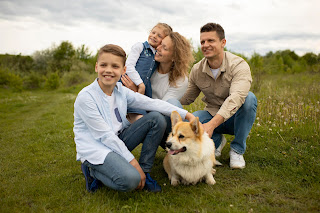Training Tips for Golden Retrievers
Certainly! Golden Retrievers are known for their friendly and trainable nature.
Here are some excellent training tips for Golden Retrievers:
1. Start Early Socialization:
Begin socializing with your Golden Retriever puppy as soon as you bring them home. Socialization is crucial for developing good behavior and confidence. Introduce your puppy to various people, dogs, environments, and situations. This helps them become well-adjusted adults.
2. Positive Reinforcement Training:
Use positive reinforcement techniques to motivate and reward your Golden Retriever. Whenever your dog exhibits the desired behavior, such as sitting or coming when called, offer praise, treats, or playtime. This positive feedback encourages them to repeat the behavior.
3. Basic Obedience Commands:
Begin with basic commands like "sit," "stay," "come," "down," and "leave it." These commands provide the foundation for good behavior and safety. Practice these commands consistently in different environments, gradually increasing distractions.
4. Consistency:
Consistency is key in dog training. Use the same words and hand signals for commands, and ensure that all family members are on the same page. Inconsistent training can confuse your dog and slow down progress.
5. Short, Engaging Training Sessions:
Keep training sessions short, especially for puppies. Young dogs have shorter attention spans, so aim for 5-10 minute sessions several times a day. Make training fun by incorporating games and rewards.
6. Leash Training:
Teaching your Golden Retriever to walk on a leash without pulling is essential. Start with short walks in low-distraction areas. Reward your dog for walking calmly beside you, and use treats or toys as incentives.
7. Crate Training:
Crate training can be valuable for housebreaking and providing your dog with a safe space. Make the crate a positive place by using treats and toys, and avoid using it for punishment.
8. Socialization Continues:
Continue socializing with your Golden Retriever throughout their life. Expose them to different people, dogs, and environments regularly. This helps prevent fear-based behaviors and aggression.
9. Positive Attitude and Patience:
Maintain a positive attitude during training. Dogs pick up on your emotions, so staying calm and upbeat is crucial. Be patient and understanding, as dogs may not learn instantly, and some behaviors may take time to modify.
1o. Exercise and Mental Stimulation:
Golden Retrievers are active breeds that require both physical exercise and mental stimulation. Regular walks, playtime, and interactive toys like puzzle feeders can prevent boredom and reduce the likelihood of destructive behavior.
11. Advanced Training:
Once your dog has mastered basic commands, consider advanced training for tricks, agility, or even therapy work. Advanced training keeps your Golden mentally and physically engaged.
12. Seek Professional Help if Needed:
If you encounter persistent behavioral issues or are unsure how to handle specific challenges, consult with a professional dog trainer or behaviorist. They can provide personalized guidance and solutions.
Conclusion
Remember that training is an ongoing process, and every dog learns at their own pace. Building a strong bond with your Golden Retriever through consistent, positive training will result in a well-behaved and happy companion.



Comments
Post a Comment